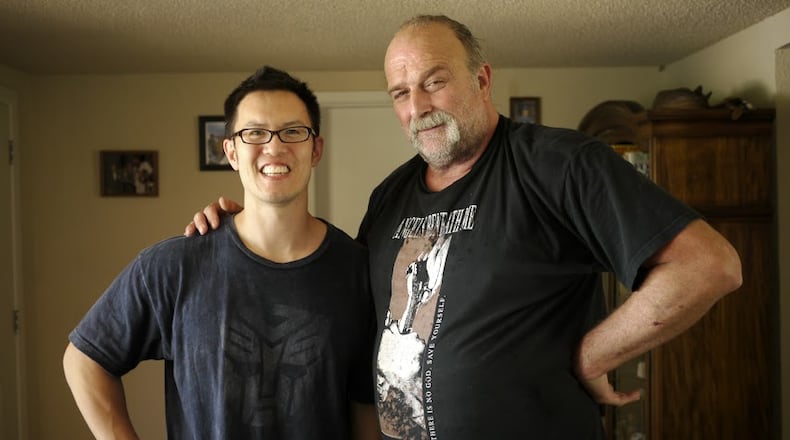MOVIE PREVIEW
"The Resurrection of Jake the Snake." 4 p.m. Sept. 18-20, Sept. 23-24; 7 p.m. Sept. 21-22. Jake Roberts and fellow wrestlers Diamond Dallas Page and Scott Hall and producer Chris Carey will make appearances after the 7 p.m. Sept. 21 screening, and Roberts, Page, Hall and Atlanta-area filmmaker Steve Yu will make appearances after the 7 p.m. Sept. 22 screening. Landmark Midtown Art Cinema, 931 Monroe Drive N.E., Atlanta. 404-879-0160, www.landmarktheatres.com/atlanta/midtown-art-cinema.
For more about the film, see jakethesnakemovie.com.
In the 1980s, Jake “the Snake” Roberts became a household name as one of the most recognizable characters in professional wrestling, a popular villain who intimidated opponents with his trademark headlock DDT move and the Burmese python he brought into the ring.
Three decades later, Roberts was weighing 300 pounds, barely able to walk and a slave to the alcohol and drug addiction that greatly contributed to the demise of his career and his relationship with his eight children.
The tail end of Roberts' downfall — and his long road to recovery — are depicted in detail at turns painful and hopeful in the documentary "The Resurrection of Jake the Snake," being shown starting Sept. 18 at Landmark Midtown Art Cinema in Atlanta. Roberts and fellow wrestlers Diamond Dallas Page and Scott Hall and producer Chris Carey will make appearances after the 7 p.m. Sept. 21 screening, and Roberts, Page, Hall and Atlanta-area filmmaker Steve Yu will make appearances after the 7 p.m. Sept. 22 screening.
Yu began filming Roberts in 2012 after he moved into Page’s Smyrna home, dubbed the “accountability crib,” in a bid to get his life back on track. Page was eager to help Roberts, who helped him break into professional wrestling in his 30s.
Selling Roberts on filming his road to recovery was easier than Yu and Page anticipated, especially after Roberts’ negative experience filming the 1999 wrestling documentary “Beyond the Mat,” which he said “raked me over the coals.”
But Roberts saw Yu’s film as a glimmer of hope, a way to hold him accountable during his recovery.
“Once Dallas told him about it, we couldn’t not do it,” Yu said.
“I was desperate,” said Roberts, who had previously tried traditional rehab several times before agreeing to move in with Page. “I saw this as my last shot to get clean and get happy.”
Page implemented a fitness program that included yoga and a diet to help Roberts maintain his sobriety, and Roberts also attended Alcoholics Anonymous meetings and tackled his issues with low self-esteem with a therapist.
It wasn’t always easy — Roberts relapsed with alcohol five times while living at Page’s self-named “accountability crib” before staying sober, and each relapse was caught on film. But he says Page’s approach has worked better for him than any other program he’s tried.
“I woke up one day after about 10 months of working with Dallas and I said, ‘Dude, thank you.’ And he said, ‘For what?’ and I said, ‘I had a good dream last night.’ I hadn’t had a good dream in years. You get into a hole where there is no happy.”
While Roberts admits it was initially difficult allowing himself to be vulnerable on camera, Yu said it was his willingness to open up that has resonated with audiences. Yu said even wrestlers, known in large part for their macho personas, told them the film touched them emotionally.
“Stone Cold Steve Austin saw the film and admitted that several times, he had tears in his eyes,” Yu said.
The film, which premiered in January at the Slamdance Film Festival, has also given Roberts a renewed sense of purpose. He's in remission from a 2014 cancer diagnosis, has reconnected with most of his kids and grandkids, and has snagged a gig as a coach for a wrestling entertainment venture in Las Vegas. But he said the fact that the film is helping people understand addiction is the most rewarding part of the process.
“I just want to inspire people to help others,” Roberts said. “If Dallas hadn’t done it for me, I’d be dead right now.”
About the Author





